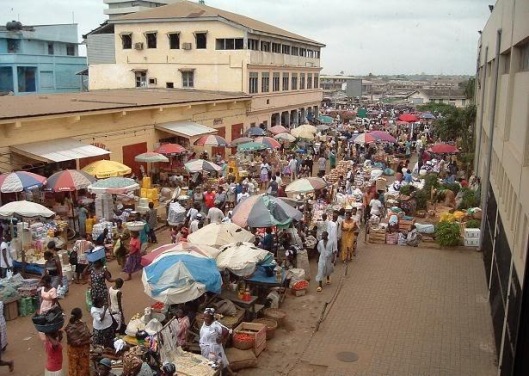
By Korsi DZOKOTO
As Ghana prepares for the future, it is essential to rethink our industrial and manufacturing sectors’ role in driving economic growth and improving the livelihoods of our people. The global economy is becoming increasingly competitive, and to position Ghana as a leading industrial nation in Africa, we must adopt bold, transformative strategies. One such strategy is the implementation of a 24-hour economy within the industry and manufacturing sectors. As the 2024 Presidential candidate for the National Democratic Congress (NDC), I am committed to leading this charge and ensuring that our industries are more productive, competitive, and resilient.
Objectives
The primary objectives of implementing a 24-hour economy in the industry and manufacturing sector are multifaceted. Firstly, we aim to increase industrial productivity by maximizing output through continuous operations. This approach will ensure that our factories and production plants are operating at full capacity, thereby reducing downtime and increasing efficiency.
Secondly, this initiative will be a significant driver of job creation. By introducing shift work systems and round-the-clock operations, we can generate thousands of employment opportunities in various sectors, from manufacturing to logistics, thereby addressing the issue of unemployment in the country.
Thirdly, our goal is to enhance the global competitiveness of Ghanaian industries. Continuous production will allow us to meet both domestic and international demand more effectively, positioning Ghana as a reliable supplier in global markets.
Moreover, this shift will contribute to economic growth by significantly increasing the industrial sector’s contribution to GDP. We also aim to reduce operational costs through economies of scale and improved efficiency, making our industries more profitable.
Lastly, we recognize the urgent need to reduce food inflation. By increasing production capacity and improving supply chains, we can stabilize food prices, making essential goods more affordable for all Ghanaians.
Key Components
Industrial Production lies at the heart of this 24-hour economy. To achieve continuous production, we will implement shift work systems that ensure factories operate smoothly around the clock. Advanced automation and technology will be integrated to support these operations, ensuring that production is not only continuous but also efficient.
Resource management will be critical to sustaining these operations. We will focus on the efficient use of raw materials, ensuring that production processes are sustainable and cost-effective.
Collaboration with key stakeholders is essential for the success of this initiative. We will partner with the Association of Ghana Industries (AGI) to identify industries that can benefit most from 24-hour operations and provide them with the necessary support. The Private Enterprise Federation (PEF) will be instrumental in advocating for policies that facilitate continuous operations. Furthermore, we will engage financial institutions to offer 24-hour banking services tailored to the needs of industrial transactions. Ensuring a reliable and uninterrupted power supply will require close cooperation with energy providers.
Infrastructure Development will be another critical area of focus. We will develop and enhance industrial zones with the necessary infrastructure to support 24-hour operations. This includes improving logistics and transport networks to ensure the continuous movement of goods and implementing robust security measures to safeguard operations during night shifts.
Implementation Plan
To effectively implement this vision, we will prioritize infrastructure and technology. Establishing or upgrading industrial parks with the necessary infrastructure for 24-hour operations will be a priority. Investments in automation and robotics will enhance productivity and support continuous operations. Additionally, we will implement sustainable and reliable energy solutions to prevent downtime.
Capacity building is crucial for the success of this initiative. We will provide training programs for workers on 24-hour operations, safety protocols, and the use of advanced technologies. Management training will also be provided to ensure effective shift management and operational oversight.
A supportive policy and regulatory framework will be essential. We will advocate for policies that encourage 24-hour industrial operations and offer incentives such as tax breaks, subsidies, and grants to businesses that adopt this model. Labor regulations will also be adapted to support shift work while ensuring worker welfare.
Engaging stakeholders through public-private partnerships will be a key strategy. We will work closely with the private sector, development partners, and local communities to ensure the successful implementation of this vision. Collaborating with industry associations will help promote best practices and advocate for supportive policies.
Inducing Demand for Locally Manufactured Goods
To support this 24-hour economy, we must induce demand for locally manufactured goods. The government will lead by example through government procurement policies that prioritize locally produced items. A “Buy Ghana” campaign will be launched to encourage citizens to purchase locally made products, and we will enforce local content laws requiring a certain percentage of government procurement to be sourced from local manufacturers.
Consumer awareness and education will be critical. We will launch national campaigns to educate consumers on the benefits of buying locally made products and ensure that these products meet high quality standards to build consumer trust.
Leveraging AfCFTA for Export
The African Continental Free Trade Area (AfCFTA) presents a unique opportunity for Ghanaian industries to expand their markets. We will implement export readiness programs to enhance the capacity of local manufacturers to compete in African markets. Trade facilitation measures will simplify export procedures and reduce bureaucratic hurdles.
Benefits
The benefits of a 24-hour economy in the industrial and manufacturing sectors are immense. This initiative will create thousands of jobs, enhance productivity, and significantly contribute to Ghana’s GDP. Our industries will become more competitive globally, operational costs will be reduced, and food prices will stabilize due to increased production capacity.
In conclusion, the 24-hour economy in the industry and manufacturing sector is a bold and necessary step towards achieving our economic goals. With the right infrastructure, policies, and stakeholder collaboration, we can transform Ghana into a leading industrial nation in Africa. This is my vision for a prosperous and industrialized Ghana, and I am committed to making it a reality. Together, we can build a brighter future for all Ghanaians.
The post A vision for a 24-hour economy in the industry and manufacturing sector appeared first on The Business & Financial Times.
Read Full Story














Facebook
Twitter
Pinterest
Instagram
Google+
YouTube
LinkedIn
RSS